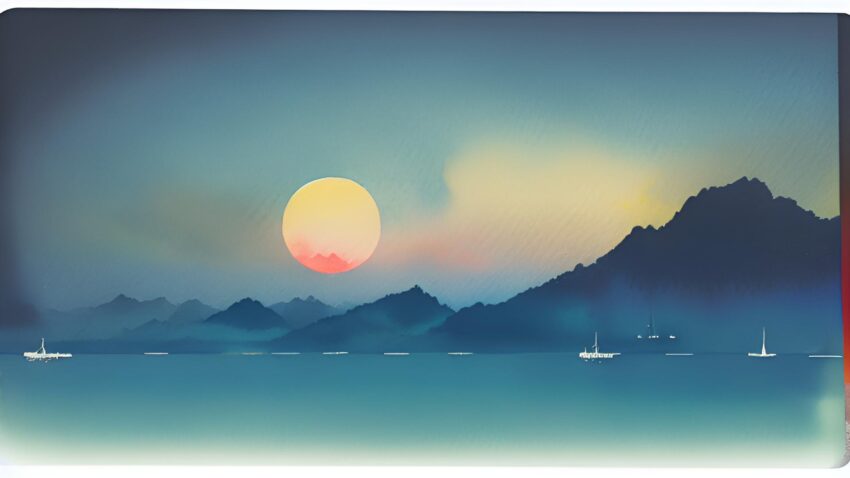Recently I started looking deeper into Ernst Jünger, per the writings and discussions of some IRL friends, one of whom characterized Jünger as the rare breed of author who could write without subterfuge.
And from another friend’s Instragram post this summer as he visited Junger’s home in Germany:
Jünger was a strong candidate for most interesting man of the 20th Century – ran away to join the French Foreign Legion, became a German WWI war hero and literary darling of ‘20s nationalists, but despised the Nazis, using his position in occupied Paris to quietly protect intellectuals and Jews (while cuckolding the occasional Nazi general).
After the war, his anti-technological and anti-totalitarian writings resonated with counterculture figures, and Albert Hoffmann credited Junger’s Heliopolis with inspiring his discovery of LSD. After experimenting with mescaline, Junger would later coin the term “psychonaut.” His house in Wilflingen is preserved as it was when he died at 102, having become an icon of postwar literary reconciliation. The house itself was given to him by the Stauffenberg family, known for Claus von Stauffenberg’s attempt to kill Hitler (Junger was probably not directly involved, but the plotters likely intended to use his samizdat work, “The Peace” as the moral basis of their offer to the Allies).
Storm of Steel, a World War I memoir detailing Junger’s service as a German soldier, is probably the author’s best-known work, but I’ve been recommended another title, called On the Marble Cliffs, by another well-read friend, who places the book in the same literary space as Lord of the Rings.
A quick Google search yields “Security in the Void” at the Paris Review, where author/translator Jessi Jezewska Stevens writes: “On the Marble Cliffs charts the slow infiltration and eventual destruction of a sophisticated, Elysian society by a barbaric forest tribe whose ruthless leader sows anarchy and terror. Set, like all fables, in a distant time of its own, the story centers on two battle-hardened brothers who’ve renounced war, politics, and worldly concerns for a monkish existence as botanists. They live apart from the simmering chaos, high up on the Marble Cliffs.”
She continues (emphases mine):
The novel is defined by its fantastical Mediterranean landscape, and we spend much of our time admiring the view. To one side of the cliffs lies the Marina, with its lush vineyards and islands that “float on the blue tides like bright flower petals”; to the other, the Campagna, populated by rough but noble cattle herders, and bordered by the “dark fringe” of the forest, where the forces of anarchy lie in wait. There is much to lose: jeweled lizards, red vipers slithering as if in a single “glowing web,” astonishing orchids, magical mirrors, abundant vineyards, rarefied libraries. This symbology flickers throughout the novel like reflections on a lake, captivating yet shifting, and ultimately eluding fixed interpretation. The imaginary world is at once classical and modern; perhaps this ancient-seeming realm isn’t quite so distant as we thought. There are both automobiles and ballads dedicated to a “gluttonous Hercules,” shotguns as well as Roman stone.
The most striking quality of On the Marble Cliffs is, to me, its stillness. If fiction is the art of lending time to concepts and truths that seem to exist outside of time, On the Marble Cliffs aims for just the opposite. It is an exercise in “draining time,” to borrow the phrase the brothers use to describe the study of botany. Until the frenzy of the final battle scene, the book distills itself to a single suspended moment. The narration hovers over the landscape like a charge in the air. It’s the quiet before the storm, or, in our botanists’ case, before they “fall into the abyss.”

Elsewhere, from the war chest of Junger references in my Gmail inbox:
Autonomy and the Automation: “…Jünger helps resolve a paradox that I at least have wrestled with for some time (especially as a freedom-loving American): the paradox of individual autonomy. The paradox is this: we subsist under an increasingly totalizing and oppressive managerial regime, in which a vast impersonal hive-mind of officious bureaucrats and ideological programmers aims to surveil, constrain, and manage every aspect of our lives, from our behavior to our associations and even our language and beliefs. This rule-by-scowling-HR manager could hardly feel more collectivist – we’re trapped in a “longhouse” ruled over by controlling, emasculating, spirit-sapping, safety-obsessed nannies. Naturally, our instinct is to sound a barbaric yawp of revolt in favor of unrestrained individual freedom. And yet…it is also a kind of blind lust for unrestrained individualism that got us stuck here in the first place…”
Mimicry and Mastery: “…one of the great traps of modern society—…society at a global scale—is that a mediocre life, a life of unfreedom, can be rendered not just as habitual but as desirable. This is noticed by Ernst Jünger in his wonderful 1951 book The Forest Passage…‘the real issue,” Jünger observes, ‘is that the great majority of people do not want freedom, [and they] are actually afraid of it.’ But how is this possible? How can people end up, often so easily, wanting what is not good for them?”
Through Every Human Heart: “…it is fascinating to examine Hitler and Junger in [a] mirror dynamic. Junger, the successful artist interested in politics abstracts himself out of efficacy in this realm through a hyper-aestheticized elitism. Hitler, a failed artist interested in politics, fulfills a mutual suicide-pact with the German hoi polloi and mutually are brought to the lowest, worst experiences in history. Success in art lifts the warrior beyond anything plebian or banal into a rarified spiritual plane. Failure in art brings the demagogue in compact joined with the rude masses into hell.”
